We were lucky to catch up with Mike Ross recently and have shared our conversation below.
Mike, appreciate you joining us today. Are you able to earn a full-time living from your creative work? If so, can you walk us through your journey and how you made it happen?
Yes, I have been lucky enough to make a full-time living from my work for the past 6 or 7 years. It was definitely not that way from day one! To make that happen it requires a tremendous amount of dedication and commitment to your work. You’ve got to have a lot of confidence that what you’re doing is of quality and is unique – with a healthy degree of humility and gratitude as well, because you can’t get there without the encouragement of people who believe in you and support your work, whether that means the core group of friends and loved ones who support you psychologically and emotionally, and/or the people – often strangers – who support your work financially (by purchasing or commissioning your work).
I don’t think speeding up the process is really the point – I think you just have to be consistent and prolific. There’s no way to speed up the process of “paying your dues”. I think having to work hard to gain a level of success is part of what makes your work good, and therefore sought after.
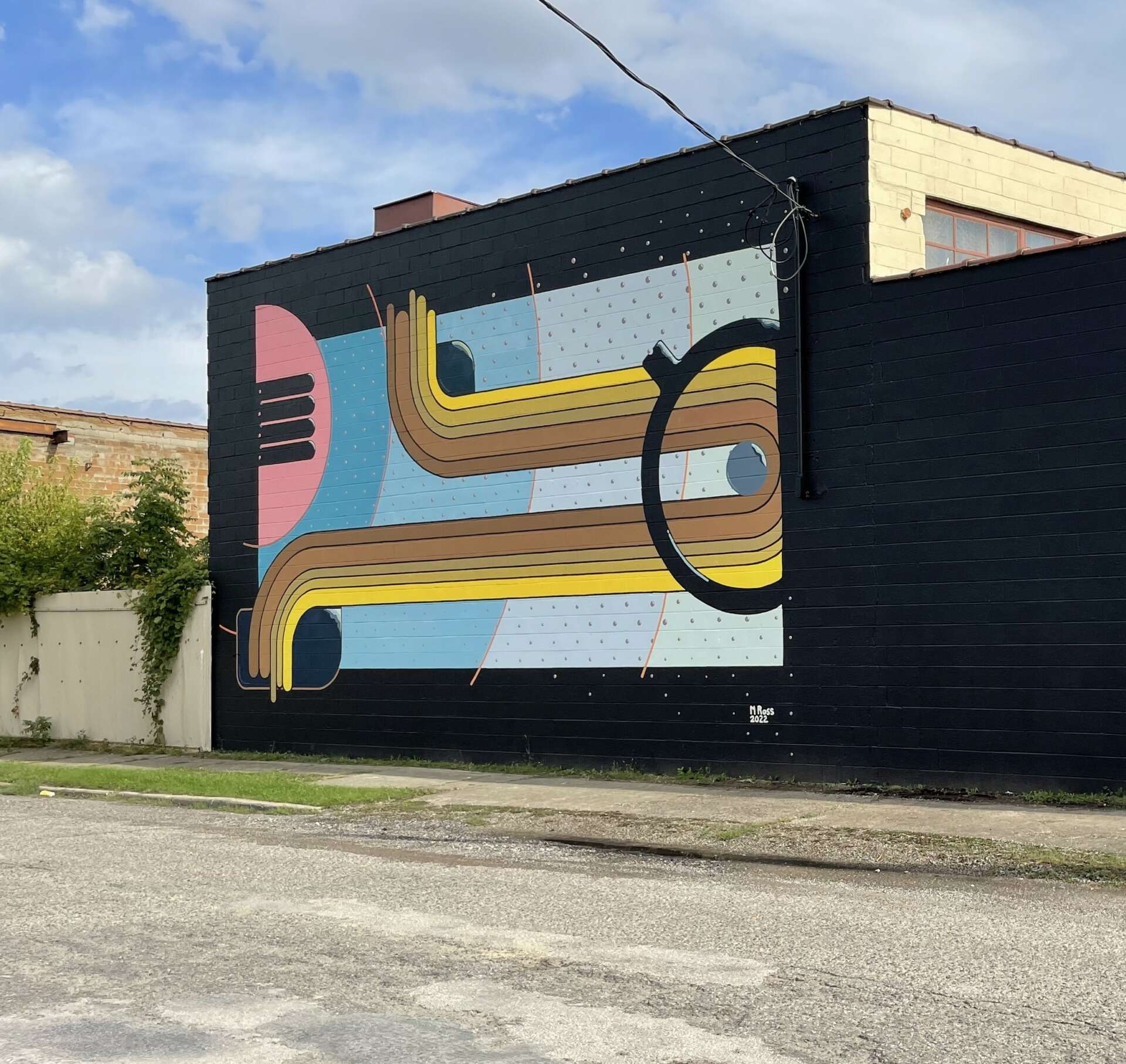
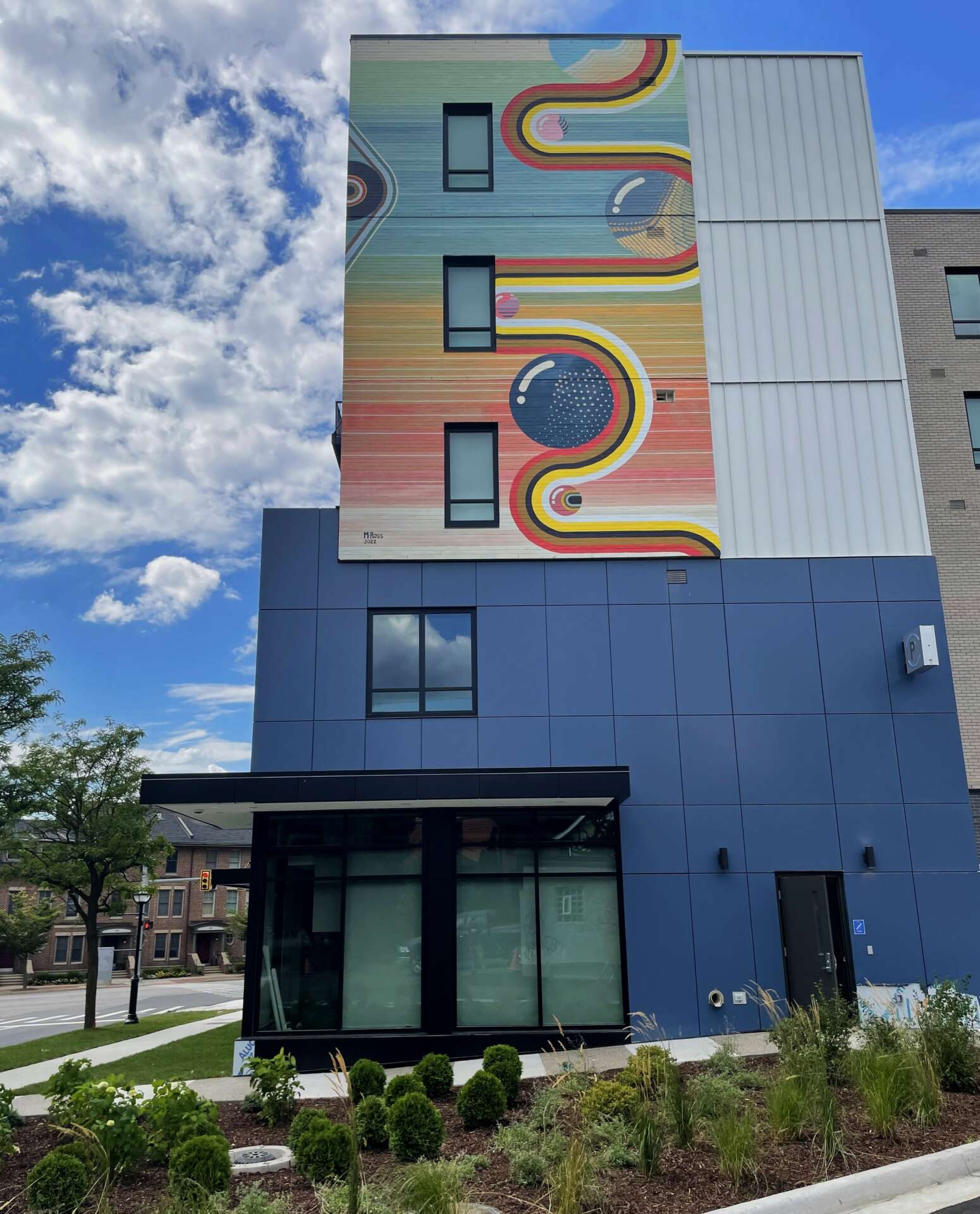
As always, we appreciate you sharing your insights and we’ve got a few more questions for you, but before we get to all of that can you take a minute to introduce yourself and give our readers some of your back background and context?
I’m primarily a painter, and an oil painter specifically, but I’m also a muralist and in the last year I’ve become a gallerist as well. I’ve also been known to spin records, but that’s a little bit away from the subject (though music is and always has been a driving influence in my work). My work deals with pattern and color gradients, and is mostly abstract – though there are elements of landscape and figures present in a lot of it as well. I love the human form, and I love faces – any painter who has spent any time with portraiture will tell you that every face is beautiful and they are a pure pleasure to paint. Just like Mondrian would always spend some time painting a vase of flowers amidst his practice of painting geometric blocks of color, I love painting people.
I’ve been an artist for as long as I can remember, but getting to where I knew what the particular thing is that I do was a long and gradual process. I majored in Anthropology with a minor in Studio Art in college (Oakland University 2003). I really feel like all of my college career informed what later became the work that I do, but Dick Goody’s painting classes really taught me how to use oil paint (not to mention the invaluable lessons of stretching your own canvases). I also took a lot of photography and photo history courses, which taught me a lot about composition.
My work is my own as I came to it organically and gradually, though I’m not so arrogant as to say that it has no precedent. But what art comes down to, I think, is the solving of an ongoing series of problems – problems of plasticity (how can I make this material bend in order to become the thing I’m envisioning), problems of color (how can I get from vermilion to indigo without touching on purple), problems of time (I need to work deliberately enough to maintain the level of detail I’m after, but quickly enough to hold my interest and keep the paint from drying). Depending on what they do, every artist runs across a different series of problems and every artist solves those problems differently. I think what makes my work unique is the perspective I bring to it; I think that’s the case with every committed artist. And a strong belief in your work is what allows you the freedom to pursue further instances of depth in what you do. That and some kind of meditation.
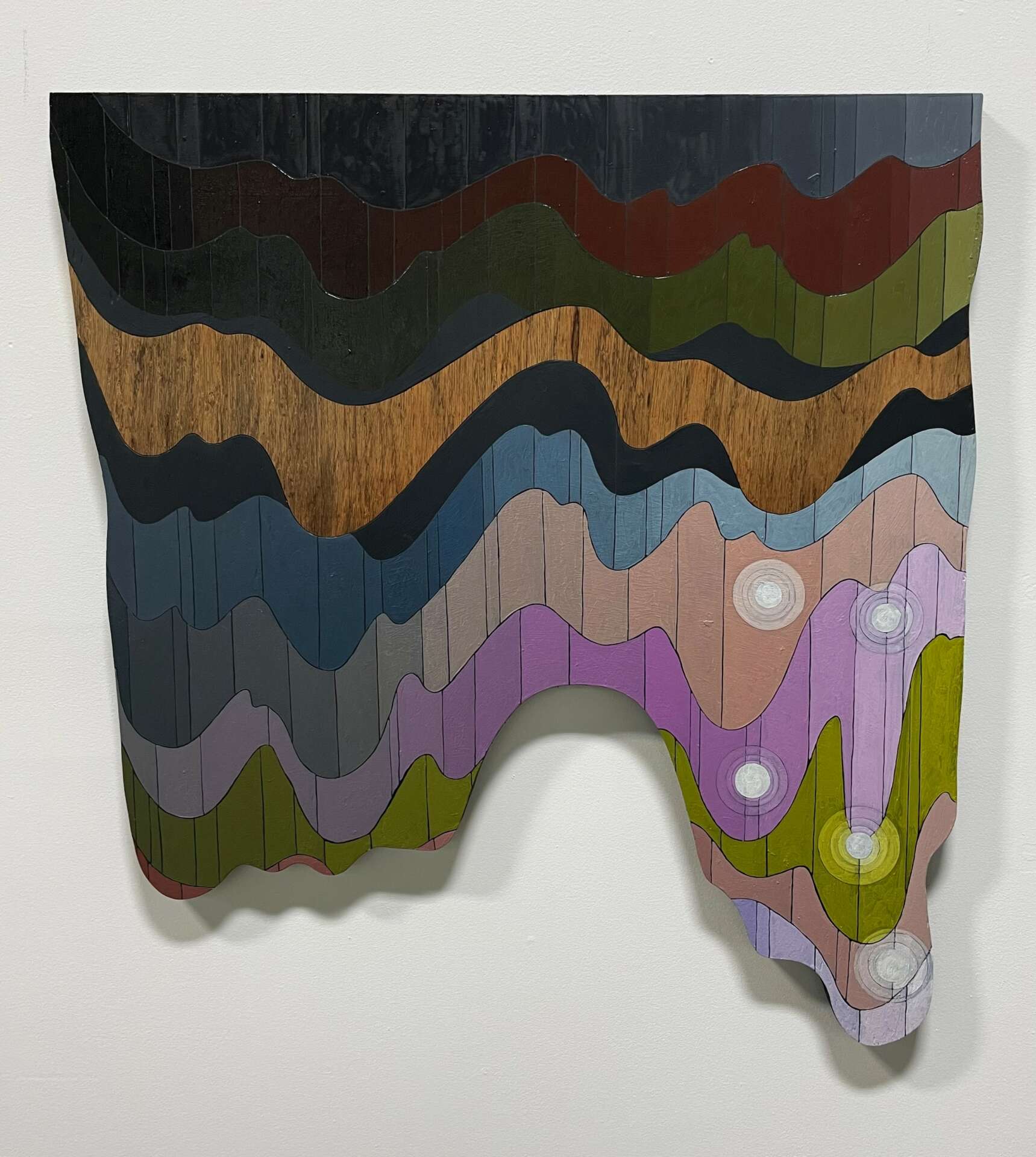
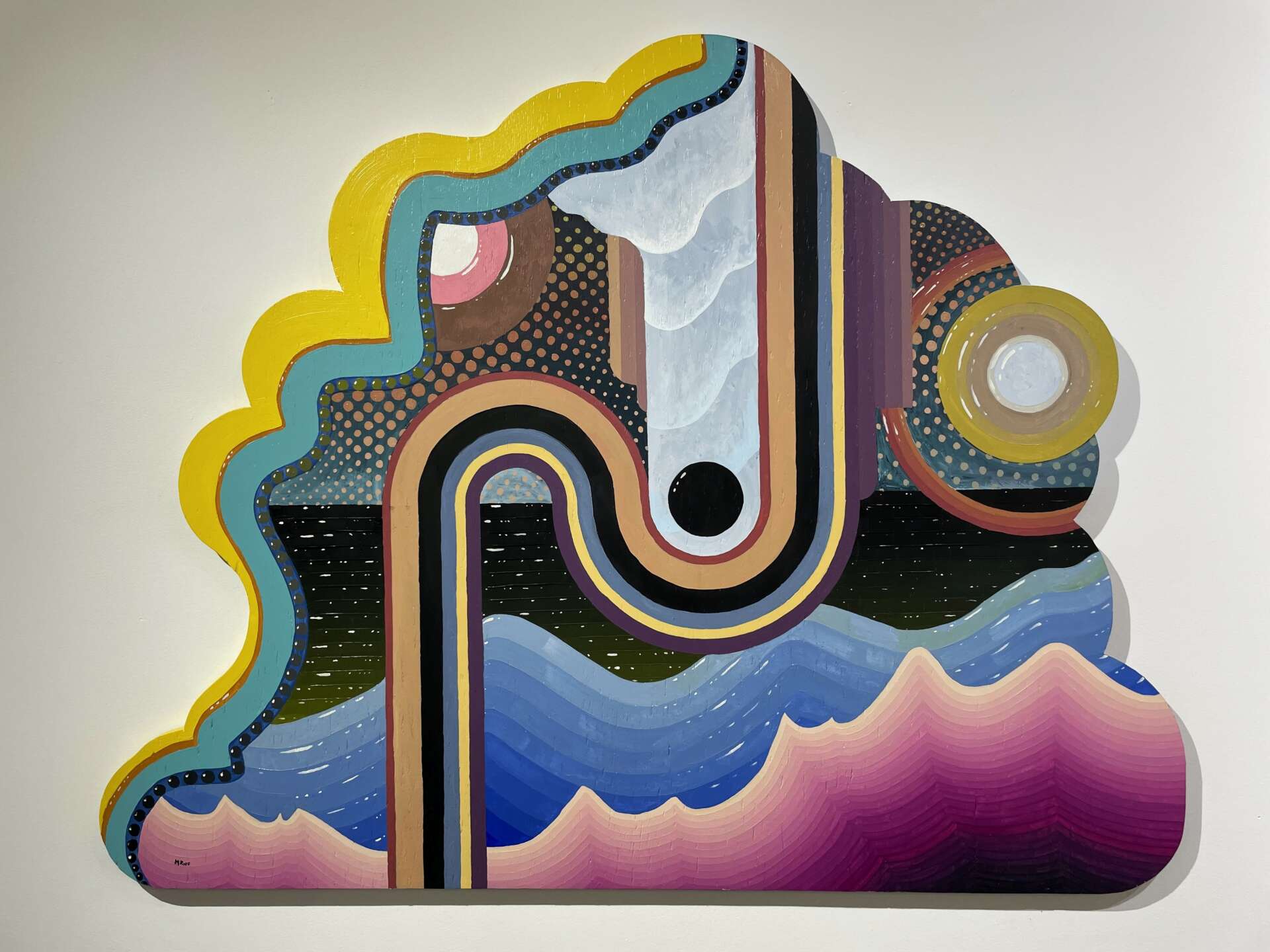
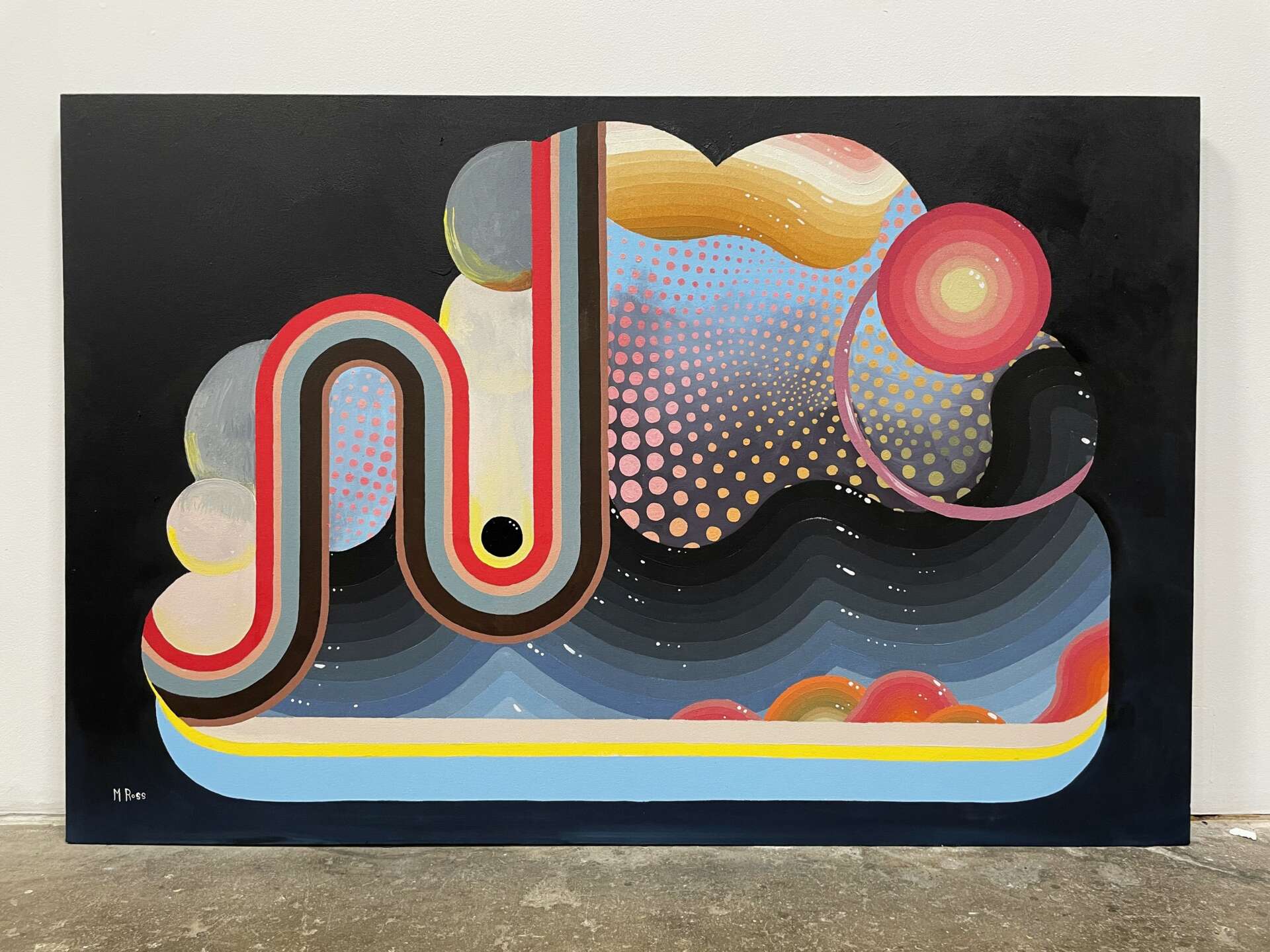
What’s the most rewarding aspect of being a creative in your experience?
I don’t know if it’s specific to me or if it’s a more generalized “artist’s personality” or what, but one of the things I love about being an artist is that the rewards are always fleeting – it’s that fleeting nature that keeps you going. You’re only as good as your last piece, and all the accolades in the world won’t keep you from feeling like you’ve got to somehow better it the next time you step into the studio. And the thing is, if that feeling is strong enough (and you keep yourself open to the lessons there to learn) you can constantly improve and evolve in your work.
Also, I truly treasure the relationships I’ve built living and working among the arts community here in Detroit and beyond. What a bunch of characters..
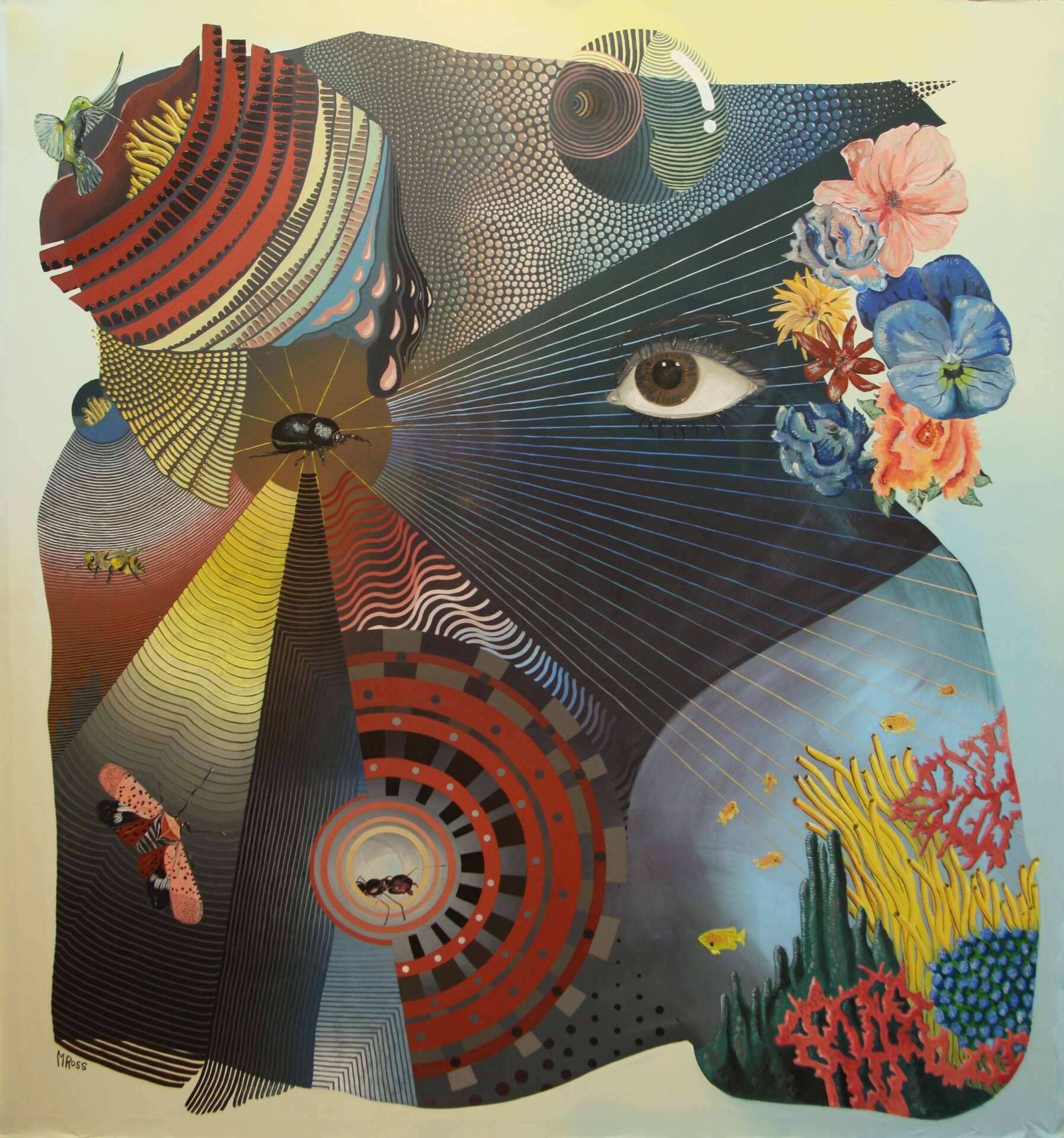
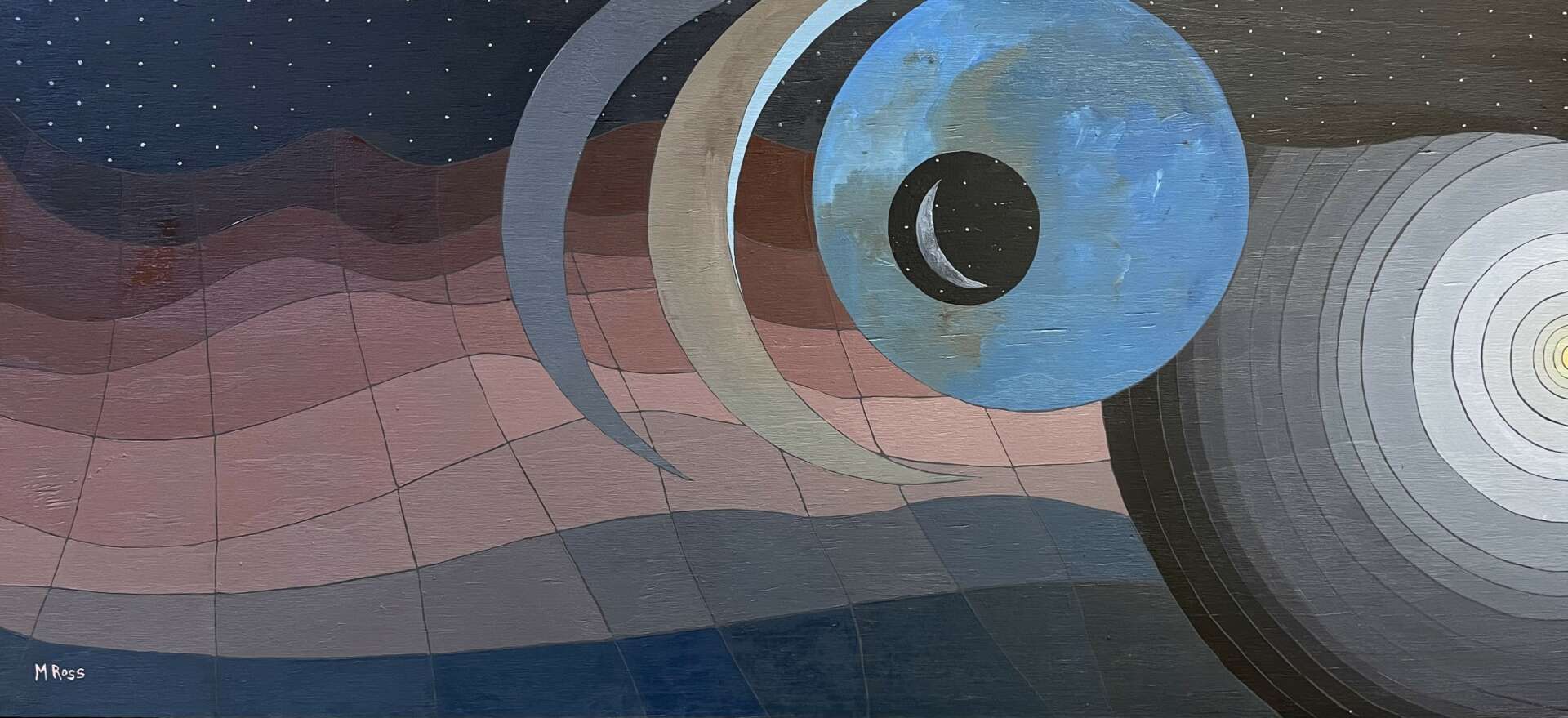

Can you tell us about a time you’ve had to pivot?
During the pandemic, I moved my workspace into a small back bedroom in our house – this forced me to work small, and with acrylics (I usually work large and with oils). These limitations forced me to devise new methods of approaching my work, and thus new ways of thinking about it. The insights I gained from this gave me new ideas and new eyes for my larger work once I got back into the studio.
Contact Info:
- Website: www.mrossart.com
- Instagram: @m_ross_41
- Facebook: https://www.facebook.com/michael.ross.587
- Linkedin: https://www.linkedin.com/in/michael-ross-b4a10586/


